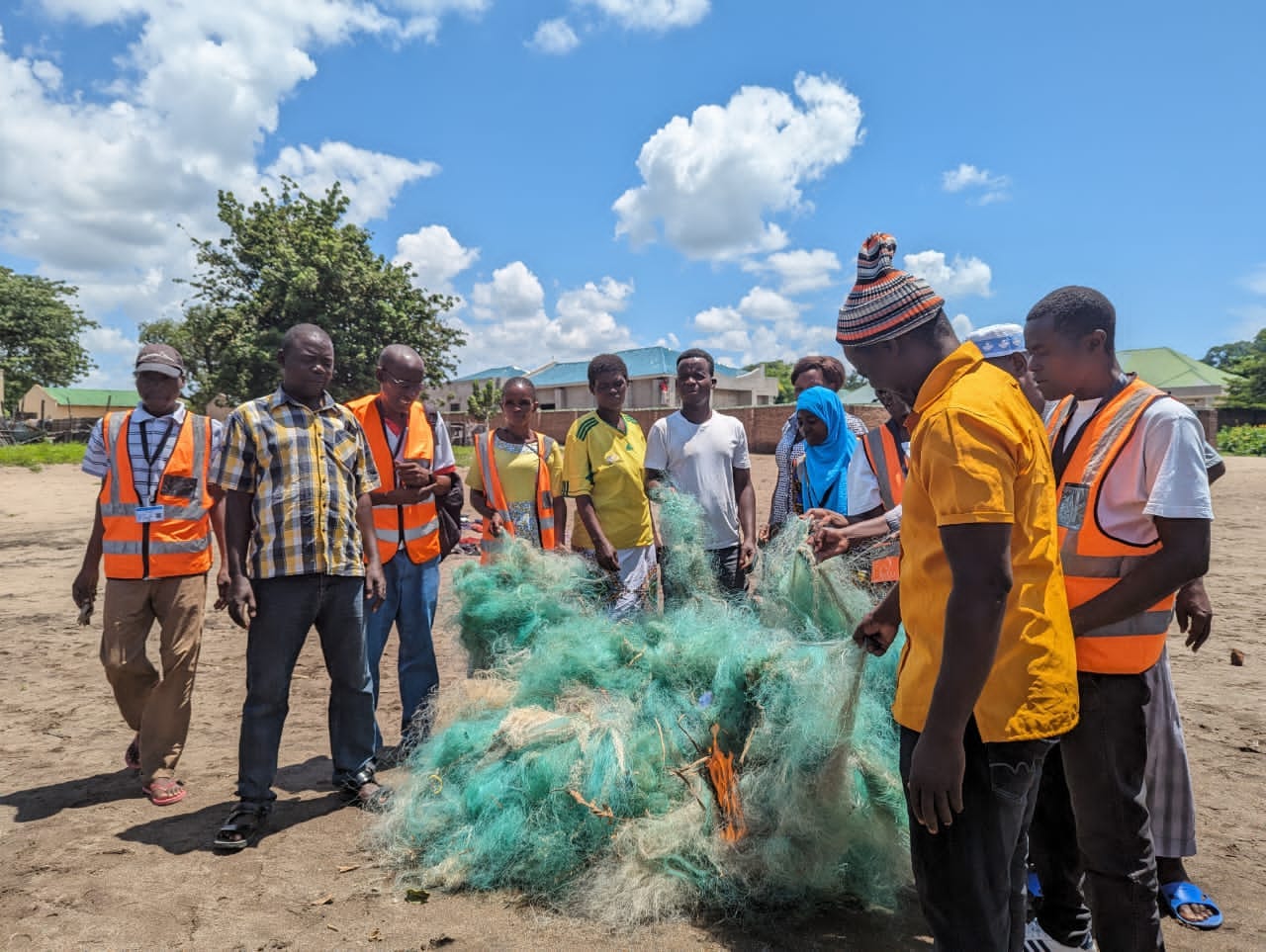Mangochi Authorities Fault Govt Over Lax Fisheries Enforcement
The REFRESH project, funded by USAID and implemented by Pact Malawi, has been working with beach village committees in eight districts in the Lake Malawi area for five years to conserve fisheries.
MANGOCHI, Malawi - Local fisheries management authorities in Mangochi have expressed dismay over the government's inadequate support to effectively enforce and monitor fishery resources in the district's water bodies, writes Comfort Bulangete.
"It is very worrisome to see that while government banned the use of some fishing gears on the lake, there is large availability such illegal fishing gears such as monofilament nets in most shops of Mangochi, as well as on the lake," said Elipher Sosola, chairperson for Chipoka 1 Beach Village Committee.
"To us as local fisheries management authorities, we feel the development as a demotivation, because we normally take ownership to protect fisheries resource, by among others, ensuring that fishermen are using proper gears on the lake, but to no avail," Sosola added.
She highlighted the lack of government patrols to curb the smuggling of illegal fishing gear into the district.
"As such, we could have loved to see that government is taking a leading role in conducting patrols in order to ensure that the illegal fishing gears are not crossing into our district," she said.
Sosola also cited inadequate empowerment from the government for beach village committees to effectively monitor fishery resources.
"As a beach village committee, we do not have equipment and resources such as engine boats and fuel in order to conduct patrols on the lake, as a result, we fail to conduct patrols on our own," she said.
Salimu M'balaka, principal fisheries officer in the Fisheries Department in Mangochi, acknowledged the challenge but attributed it to inadequate and delayed funding.
"As a department, we are doing our level best in putting some enforcing mechanisms, so that our fisheries resources are effectively monitored. However, the issue of resources is indeed a challenge regarding government as well as local institutions. From our part it is because of low funding as well as delayed funding, that affects our Programmes of monitoring as well as enforcement," M'balaka said.
He said through the Restoring Fisheries for Sustainable Livelihoods in Lake Malawi (REFRESH) project under Pact Malawi, they are able to economically empower local authorities.
"Through the project, we have taught the committees to generate funds through penalties, landing fees, and with such resource, these committees are able to conduct some minor patrols as well as monitoring of fishery resources within their jurisdiction," M'balaka explained.
The REFRESH project, funded by USAID and implemented by Pact Malawi, has been working with beach village committees in eight districts in the Lake Malawi area for five years to conserve fisheries.
The project is set to conclude in September this year.



